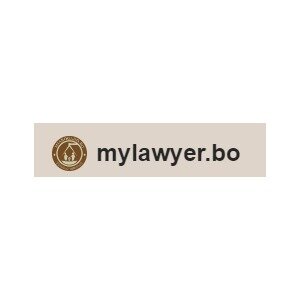Best Arrests & Searches Lawyers in Bolivia
Share your needs with us, get contacted by law firms.
Free. Takes 2 min.
Or refine your search by selecting a city:
List of the best lawyers in Bolivia
About Arrests & Searches Law in Bolivia
In Bolivia, the legal framework governing arrests and searches is primarily outlined in the country's Constitution, the Criminal Procedural Code, and related legislation. These laws establish the rights of individuals in custody, the procedures law enforcement must follow during an arrest, and the guidelines for conducting searches. The primary goal of these laws is to protect citizens' fundamental rights while ensuring public safety and upholding justice.
Why You May Need a Lawyer
Individuals may require legal support in the following situations:
1. If you or a loved one has been arrested and need assistance navigating the legal process.
2. If you believe your rights were violated during an arrest or search and are considering filing a complaint.
3. If you are facing criminal charges and need representation to ensure fair treatment and defense in court.
4. If you need to understand the legal implications of being a witness or a suspect in a criminal investigation.
Local Laws Overview
Key aspects of Bolivian laws pertaining to arrests and searches include:
- The requirement for law enforcement to present a warrant issued by a judge for most searches, except in specific circumstances where immediate action is necessary.
- The individual's right to be informed of the reasons for arrest and of their legal rights, including the right to remain silent and to consult an attorney.
- Mandatory judicial oversight for prolonged detention or preventative imprisonment to prevent unlawful or arbitrary detention.
- Protections against unreasonable searches and seizures of personal property.
- Detailed procedures for addressing cases of alleged misconduct by law enforcement officers during arrests and searches.
Frequently Asked Questions
What should I do if I am arrested in Bolivia?
If arrested, you should request to know the reason for your arrest, exercise your right to remain silent, and ask for legal assistance immediately.
Can the police search my home without a warrant?
In most cases, the police need a warrant to search a home. Exceptions include cases of hot pursuit, consent, or an emergency situation.
How long can I be detained without being charged?
The Bolivian law stipulates you must be brought before a judge within 24 hours of arrest, where the judge will decide on the legality of your detention.
What are my rights during a search?
You have the right to see the search warrant, demand officers state their authority, and observe the search procedure. If possible, have a lawyer present.
Can I refuse a search of my vehicle?
You can refuse unless the officers have a warrant, probable cause, or your consent. However, it's advised to comply politely and contest any violations legally.
What are the consequences of resisting arrest?
Resisting arrest can lead to additional charges. It is recommended to comply with the officers and later report any misconduct through legal channels.
Will I have access to a lawyer immediately upon arrest?
You have the right to access legal assistance. If you cannot afford one, the state must provide a public defender.
What constitutes an illegal search?
An illegal search generally violates your rights, such as a search without proper authorization, a lack of a warrant where one is required, or not following legal procedures.
Can I record the police during a search or arrest?
While it's generally acceptable to record, it's crucial to stay non-confrontational and aware of any specific local regulations regarding recordings.
How can I file a complaint about an unlawful search or arrest?
You can file a complaint with the local police oversight body or seek the assistance of a lawyer to guide you through the process.
Additional Resources
- Defensoría del Pueblo (Ombudsman Office): Provides guidance and support for human rights issues.
- Ministerio Público (Public Prosecutor's Office): Offers resources related to criminal proceedings.
- Bolivian National Police: For filing complaints or inquiries regarding police actions.
- Local legal aid organizations: Many non-profit organizations offer free or low-cost legal assistance and advice.
Next Steps
If you need legal assistance in matters related to arrests and searches in Bolivia, consider taking the following steps:
1. Contact a reputable lawyer with experience in criminal law to discuss your case.
2. Gather any relevant documents and evidence concerning your situation, such as arrest records, search warrants, or witness statements.
3. File any necessary complaints with the appropriate legal or governmental bodies if you believe your rights have been violated.
4. Consider reaching out to local legal aid organizations for additional support or guidance.
Lawzana helps you find the best lawyers and law firms in Bolivia through a curated and pre-screened list of qualified legal professionals. Our platform offers rankings and detailed profiles of attorneys and law firms, allowing you to compare based on practice areas, including Arrests & Searches, experience, and client feedback.
Each profile includes a description of the firm's areas of practice, client reviews, team members and partners, year of establishment, spoken languages, office locations, contact information, social media presence, and any published articles or resources. Most firms on our platform speak English and are experienced in both local and international legal matters.
Get a quote from top-rated law firms in Bolivia — quickly, securely, and without unnecessary hassle.
Disclaimer:
The information provided on this page is for general informational purposes only and does not constitute legal advice. While we strive to ensure the accuracy and relevance of the content, legal information may change over time, and interpretations of the law can vary. You should always consult with a qualified legal professional for advice specific to your situation.
We disclaim all liability for actions taken or not taken based on the content of this page. If you believe any information is incorrect or outdated, please contact us, and we will review and update it where appropriate.
Browse arrests & searches law firms by city in Bolivia
Refine your search by selecting a city.










